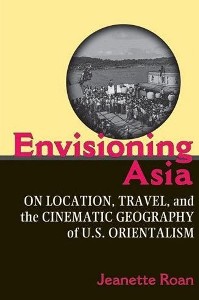Content
Roan begins her book with a discussion about the feature film The Good Earth (1937). In the publicity for the film it was claimed that viewing the film once was equal to all that a person would come to know and experience from a whole year's journey in China. However, the film was actually shot in San Fernando Valley.
Roan goes on to discuss Elias Burton Holmes, an expert who gave lectures on topics including "The Hawaiian Islands" and "The Forbidden City", which depicted the Chinese, Philippine and inhabitants of Pacific islands.
The portrayal of Asians in American films and the images they created in the minds of the audience are discussed. Analysis of "on-location shooting" of films from the last decade of the nineteenth century to 1960s is presented. She views that the concept of imperialism has changed into that of democracy and globalism. Thomas Edison's Occidental and Oriental Series has also been critically analyzed. Alterations brought by the Spanish–American War, the Philippine–American War, and the Boxer Uprising in the depiction of Asian Americans is also discussed.
A final chapter focuses on the consequences that the Occupation of Japan had on Hollywood films. The usage of Japan as a shooting spot has been discussed by citing the examples of Tokyo File 212 (1951), Three Stripes in the Sun (1955), Teahouse of the August Moon (1956), Sayonara (1957), and My Geisha (1962).
In her conclusion, Roan analyses David Cronenberg's M. Butterfly (1993), shot on location in Hungary, China, France, and Canada, and posits her reasons for the negative reception of the feature. She states that the previous Hollywood films shot in China showed the country's scenic beauty and tourist attractions to their audiences, but Cronenberg, contrary to the expectations of film viewers, focused more on the characters, narrative, and story. A few contemporary critics questioned the need for location shooting in China.
This page is based on this
Wikipedia article Text is available under the
CC BY-SA 4.0 license; additional terms may apply.
Images, videos and audio are available under their respective licenses.
